The Bitcoin price is lingering just under $19,000 at the time of writing, not far from the local low of $18,300. When the Consumer Price Index (CPI) and Producer Price Index (PPI) data was released last week, the BTC price plunged to just that price level.
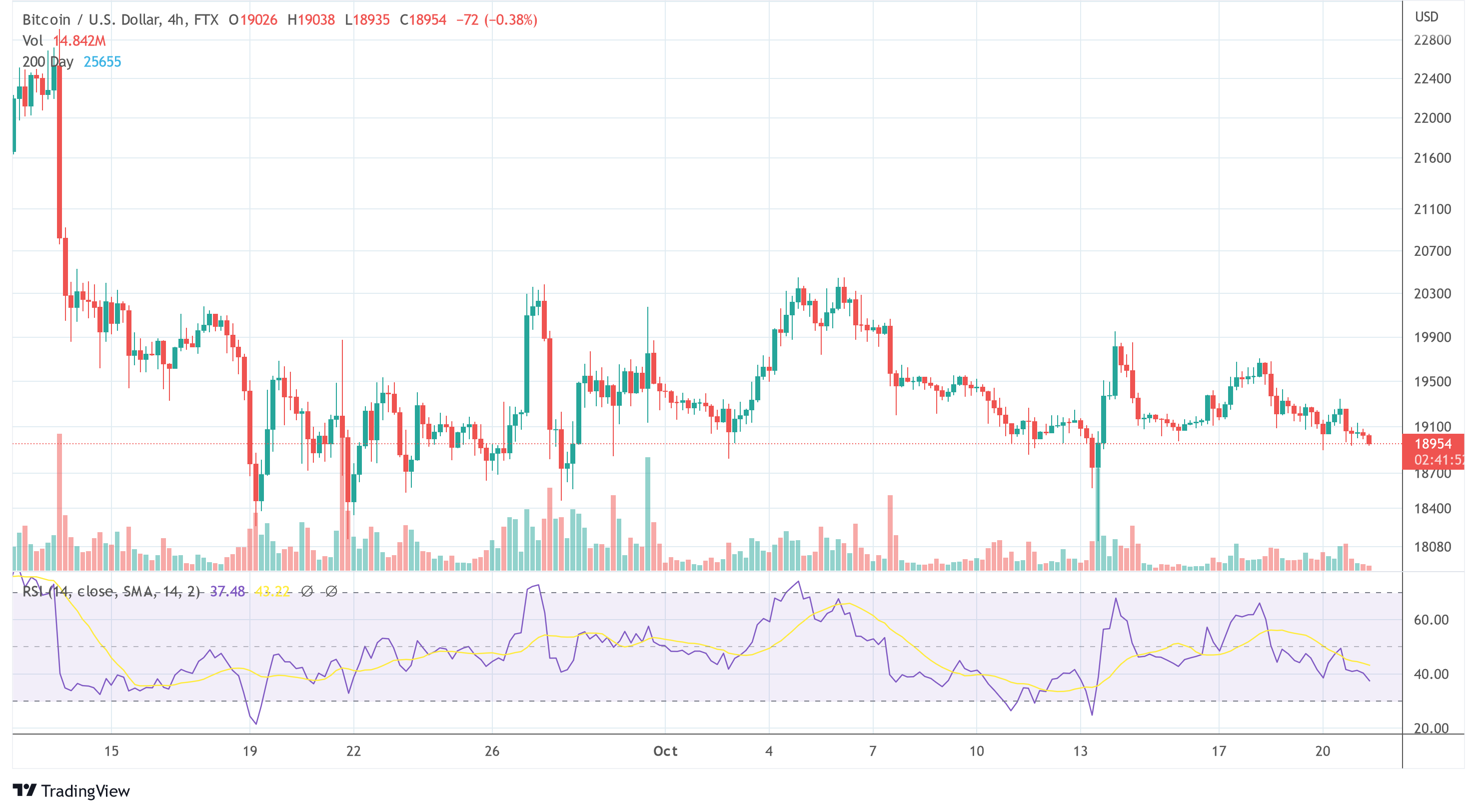
Unexpectedly for many, a very quick rebound happened, catching shorters off guard. With November 02 – when the FED meets again – in mind, the Bitcoin price doesn’t have much room to fall below that level at the moment. Moreover, a look at the on-chain suggests another crash is possible in the short term, although there are positive signals as well.
According to CryptoQuant, a bear market signal appears when the realized price of all long-term holders (blue line) goes above the realized price of all coins bought (red line) and when the BTC price falls below the realized price of long-term holders and the realized price of all coins.
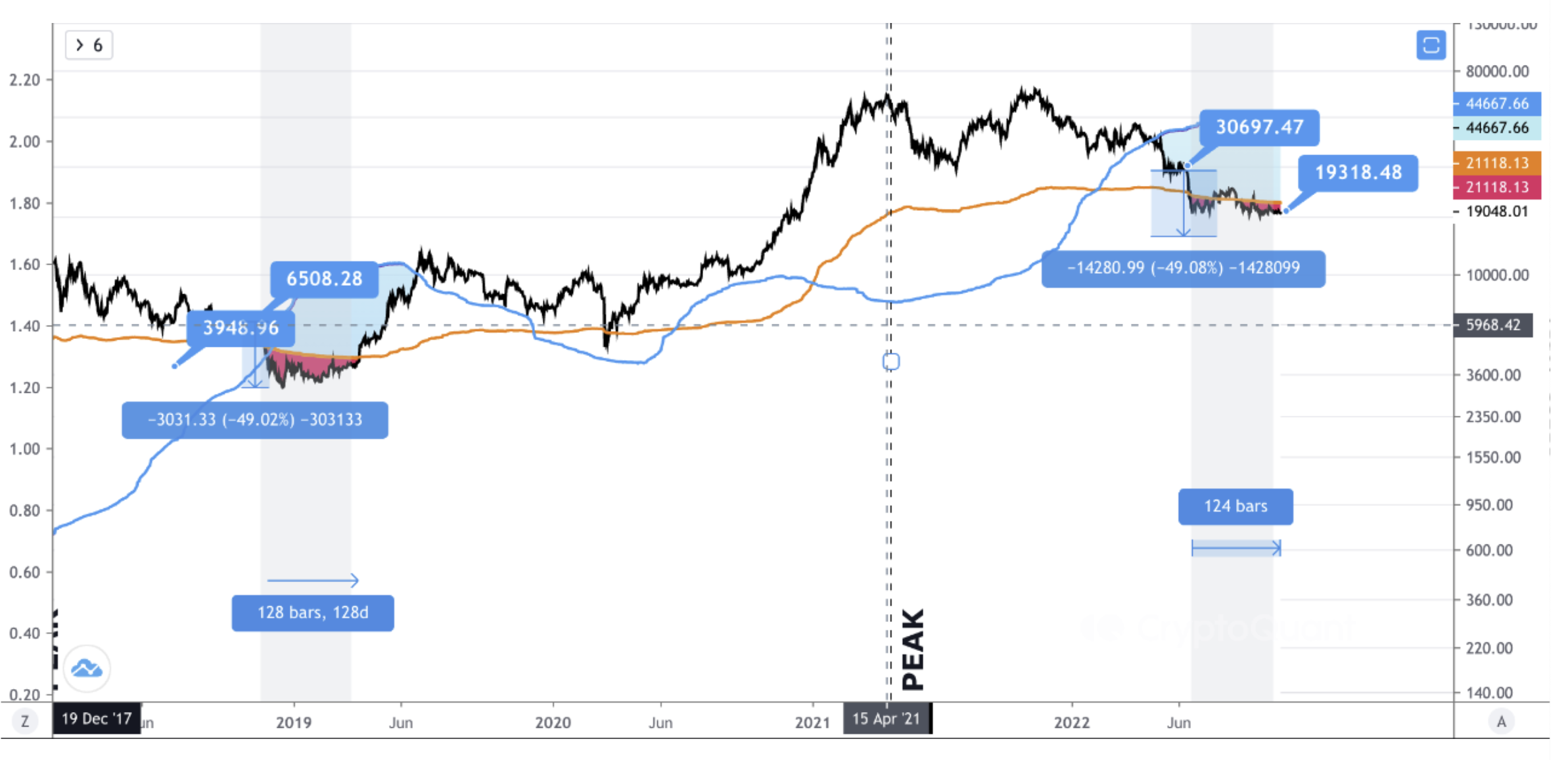
The analysis concludes that the Bitcoin price has been in a bear market for 124 days. In this respect, the drop from $6,000 to $3,000 is comparable to the price decline from $30,000 to $18.000, as the percentage decline in the last bear market from $6,000 to $3,000 was 50%.
That being said, the bottom may not have been seen yet:
The drop from $30.7k to $18.2k was 41%. A 50% drop from $30.7k would put BTC at $15k (-18% from the current price). Similar to the $14.7k delta price.
Contradictory On-Chain Data For Bitcoin
With Santiment, another major on-chain analysis service stated that the Bitcoin market needs to ideally see accumulation at the moment, while small traders remain bearish and spread doom and gloom.
However, contradictory data is showing up in this regard. Thus, Bitcoin’s small to mid-sized addresses (with 0.1 to 10 BTC) have recently reached an all-time high of 15.9% of available supply. At the same time, whales with 100 to 10,000 BTC have recorded a 3-year low of 45.6% of supply.
On the bullish side, Bitcoin experienced a massive outflow of coins from exchanges on October 18. Santiment recorded the largest daily volume in 4 months, amounting to 40,572 BTC. With this, the supply of coins on all exchanges has dropped to 8.48%. This means that the risk of a future sell-off has decreased at least somewhat.
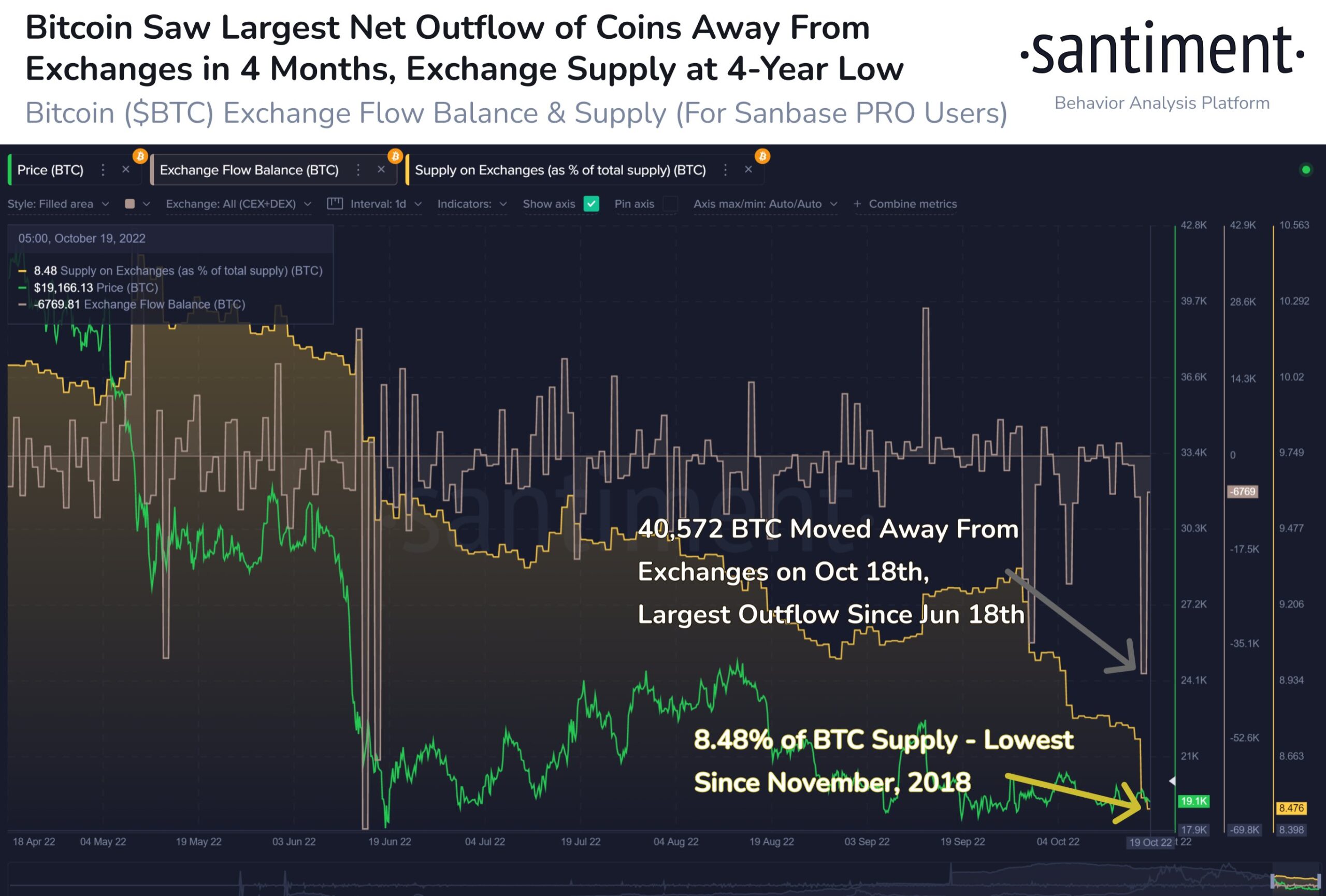
Bullish data is also reported by the third major on-chain data provider Glassnode. Bitcoin supply which has not moved in the last 6 months is approaching an all-time low. It currently stands at 18.12% of circulating supply or about 3.485 million BTC. Glassnode writes:
Historically, very low volumes of mobile supply typically occur after prolonged bear markets.
Jim Bianco, President of Bianco Research LLC, recently quoted an old trader’s adage, “Never short a dull market,” which may apply more than ever to the Bitcoin market.
According to his analysis, the realized volatility meaning the backwardation or actual volatility is at a 2-year low and is recording one of the lowest levels of all time.
Markets bottom on apathy, not excitement. BTC and ETH have apathy. The S&P 500 is nearly the opposite, as prices move around like a video game. This might also be another sign of the TradFi/Crypto tight relationship breaking. If so, this is long-run bullish for crypto.
Diverging volatility could therefore be a sign of this shift and ultimately trigger a long-term positive trend.


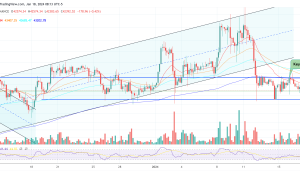
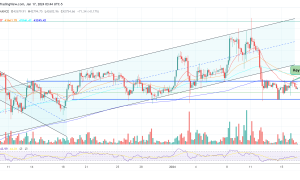
Leave a comment